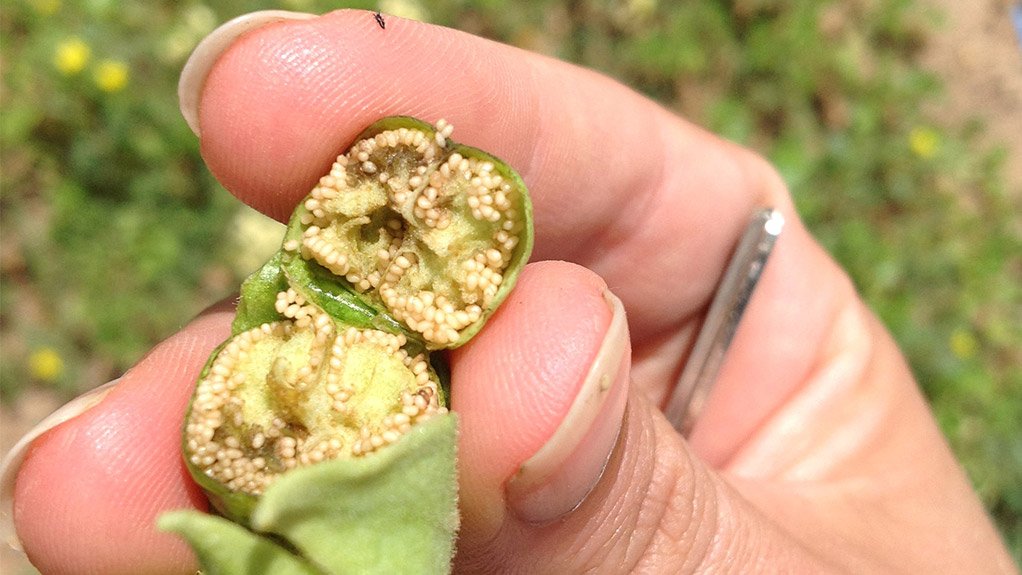A R350-million assistance package offered by the South African government to existing or prospective local agricultural exporters to Cuba has, some four years after its original announcement, finally become available to exporters.
Intended to stimulate bilateral trade relations between the two States, the Cuba Economic Assistance Package was structured into three facilities, the first of which comprised a grant of R5-million for the purchase of seeds in South Africa and the remaining R35-million for the purchase of seeds either in South Africa or elsewhere in the world.
The second facility comprised a “solidarity grant” of R100-million for the purchase of goods in the South African market, while the third would provide a R210-million credit line.
A R70-million tranche of the credit line would be available immediately upon entry of the agreement into force, after which the second R140-million tranche would become available, Trade and Industry Minister Dr Rob Davies said on Friday.
Outlining conditions for qualification, he noted that the package was available to all South African companies that met the requirement of at least 50% local content for goods and associated services.
All goods were covered by the agreement, with the exception of armaments, tobacco and beverages with an alcohol content exceeding 24%.
In addition, all interested suppliers or exporters would “have to approach Cuba” and, once the Cuban importer and the South African exporter had concluded an export contract, a supporting document could be presented to the African Renaissance Fund (ARF) – the package’s new facility agent – for payment.
“Cuba has indicated its interest to initially procure onion seeds from South Africa using the package. However, this does not prohibit companies from marketing other goods to Cuba,” Davies said in a statement.
President Jacob Zuma initially announced the package during a State visit to Cuba in December 2010, saying it would assist with the island State’s agricultural development process as well as the reconstruction of infrastructure following damage caused by hurricanes in 2008.
To give effect to the announcement, Davies and former Cuban ambassador to South Africa Angel Villa signed the Agreement between the Government of the Republic of South Africa and the Government of the Republic of Cuba on Economic Assistance in February 2012, after which it was ratified by Parliament in November that year.
“However, there were some delays in implementing the agreement,” Davies explained.
These included the withdrawal of the Industrial Development Corporation as a facility agent, which delayed the operation of the package and meant that a new agent had to be identified.
“The Department of Trade and Industry (DTI) is pleased that the Department of International Relations and Cooperation (Dirco), through the ARF, agreed to act as the new facility agent.
“The DTI and other government departments, such as the Department of Agriculture, Forestry and Fisheries, and National Treasury, as part of a steering committee, will continue to provide support to Dirco,” Davies noted, adding that the ARF would render its services free of charge.
Further, the agreement required several amendments to make it more “exporter-friendly”.
Several amendments were the result of concerns expressed by potential exporters that wanted to have some guarantee of payment prior to goods being shipped to Cuba.
As a result, the availability period for the first two facilities was increased from 24 months to 36 months from November 21, 2012 – the date of entry into force –while the availability period of the third facility was increased from 12 months to 24 months.
Moreover, to ensure that small and medium-sized enterprises also benefitted from the agreement, the minimum amount for transactions was reduced to R100 000 from R2.5-million and the availability period in which Cuba could access the various facilities was extended.
The DTI added on Friday that Trade and Industry Deputy Minister Mzwandile Masina would, in November, lead a delegation to participate in the thirty-second edition of the Havana International Fair, providing an opportunity for South African companies to expose their products to the Cuban market.
He would be accompanied by officials from the DTI, as well as a business delegation comprising 17 companies, whose products included food and beverages, domestic chemicals and paints, mining and sugar cane equipment, pumps and valves, pipes and hoses, and electrotechnical products.
EMAIL THIS ARTICLE SAVE THIS ARTICLE
To subscribe email subscriptions@creamermedia.co.za or click here
To advertise email advertising@creamermedia.co.za or click here











